Washington Update, March 2020
Policymakers Respond to COVID-19
By Johanna Gray and Ellen Riker
On March 13th, President Trump declared the COVID-19 epidemic a national emergency, which allows a number of policy changes to be possible. For example, CMS may waive certain requirements under Medicare, Medicaid and CHIP. Since then, a number of press statements and guidances have been released and we anticipate that more changes to Medicare and Medicaid are likely as federal and state governments respond to provider challenges in caring for patients in this extremely difficult time. Here are a few highlights:
- On March 17, CMS expanded telehealth benefits for Medicare beneficiaries during the COVID-19 outbreak to allow individuals to receive a wider range of healthcare services without having to travel to a healthcare facility. Clinicians can bill immediately for dates of service starting March 6, 2020 for patients affected by COVID-19 and other conditions. Telehealth services are paid under the Physician Fee Schedule at the same amount as in-person services. More info about the telehealth policies may be found here: Medicare Telehealth Fact Sheet and Medicare Frequently Asked Questions.
- State Medicaid programs can apply for Section 1135 waivers to temporarily change their policies in response to the crisis. They are allowed to enact policies such as: to suspend prior authorization requirements; extend existing authorizations for services where beneficiary previously received prior authorization through the end of the public health emergency; and waive requirements that physicians and other health care professionals be licensed in the state in which they are providing services, so long as they have equivalent licensing in another state, among other changes. As of this writing, 35 states have had 1135 waivers approved. This website has more details.
- Separately, a group called GovPredict has created a dashboard to track state legislation related to COVID-19 across multiple topics including general aid, education, workers compensation, telemedicine, emergency measures, among other topics. Click here to see the dashboard.
Congress has also been extremely busy responding to the COVID-19 emergency. It has enacted three laws to provide additional funding for federal and state public health agencies, health care providers, loans for small businesses and nonprofits, and expanded unemployment insurance and cash payments for individuals. The Coronavirus Aid, Relief, and Economic Security Act or The CARES Act enacted on March 27 also includes health policy changes, such as: to allow for 90-day prescription refills under Medicare Part D (so not for bleeding disorders treatments, but for co-morbidities); ensure no cost-sharing for COVID-19 tests under Medicare Part B; enact significant expansions of telehealth for new patients and provided by home health, hospice, FQHCs, and rural clinics; and allow for Medicaid to cover COVID testing and vaccines for the uninsured without co-pays. While Congress is now in recess until April 20th, we anticipate that there will be a fourth COVID response bill in the coming weeks.
The response from Washington has been evolving as the crisis has. We will send updates to the community as new guidance documents are released. Please be in touch with us with any questions or concerns as you help your centers and patients respond to the virus.
– –
Virtual Hill Day
While we were not able to hold the Hemophilia Alliance Hill Day this month due to COVID, we still need you to help advocate for the community at home! We are planning to hold a Virtual Hill Day, where we will ask centers to email Congressional offices to seek additional co-sponsors for the Hemophilia SNF Access Act. We will provide you with template emails, contact information for Congressional staff, and will work with you to answer any questions that the staff may have.
While this sort of advocacy will count as lobbying, the good news is that while HTCs are not allowed to spend federal funding on lobbying, if you pursue this activity not during working hours or on a break, no money would be spent on the lobbying activity. We’re hoping to get even more participants than were planning to come to DC, since the time requirements are so much lower.
Look out for an email with more details, including a link to sign up to participate, next week. Please contact us with any questions in the meantime!
Also in this Issue…
Notes from Joe
· Coronavirus Update
Alliance Update
· Webinars on COVID 19 and Changes in Healthcare
· Alliance Meeting for New HTC Personnel is Postponed
· Contract Data Reporting
· 2020 Meeting Schedule
Legal Update
· Why and How HTCs Can Use Referral Arrangements in the 340B Program
Notes from the Community
· Hemophilia Alliance Foundation Announces New “Large” Grant

Comments are closed.